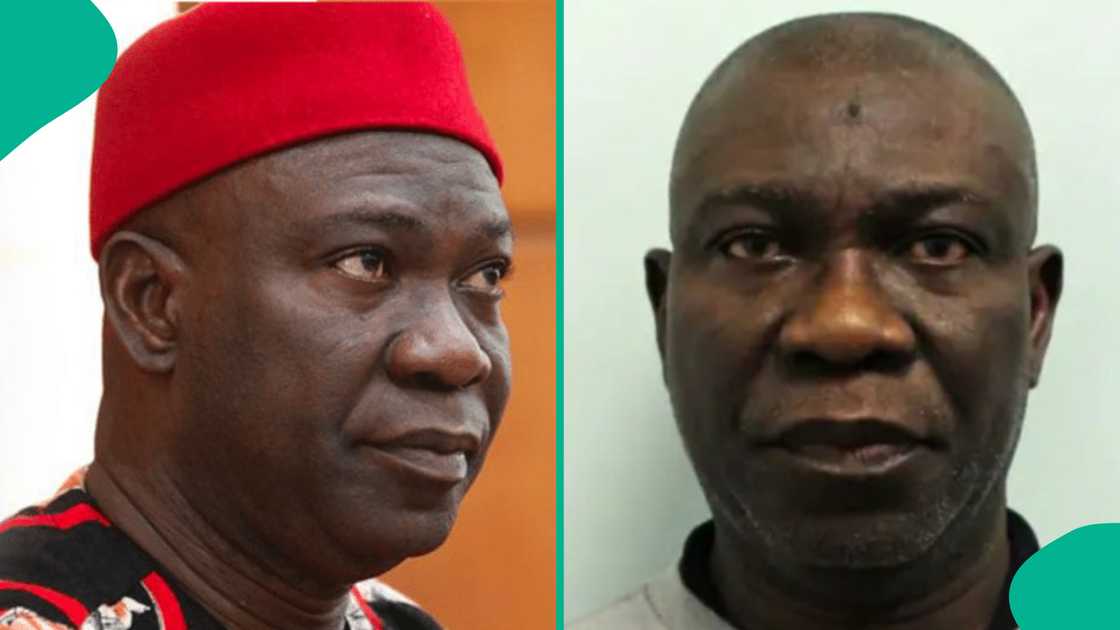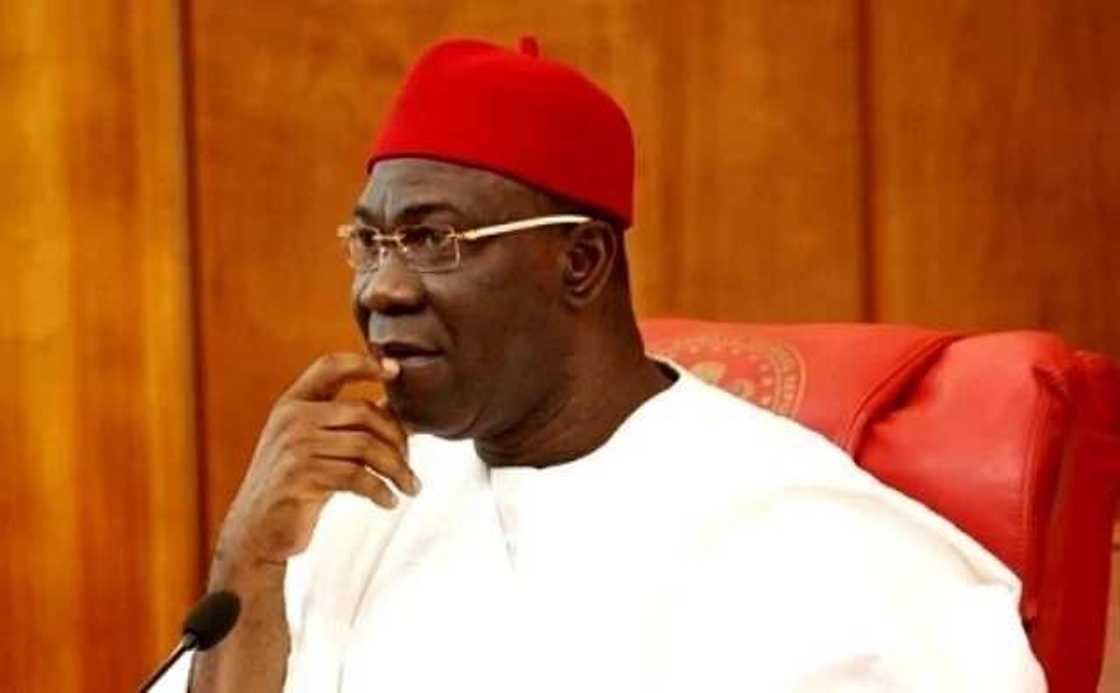Organ Harvesting: How Ekweremadu Could Have Avoided Jail
- Ike Ekweremadu was sentenced to over nine years in prison under the UK’s Modern Slavery Act for orchestrating an illegal organ trafficking scheme
- Experts suggested he could have pursued lawful options, including Iran’s regulated organ market, to address his daughter’s health needs without breaking the law
- The case has set a significant precedent in combating organ trafficking, highlighting the importance of ethical and legal decision-making
Ike Ekweremadu’s prison sentence for organ harvesting could have been avoided had he pursued lawful alternatives.
In a landmark case under the UK’s Modern Slavery Act, the former Nigerian deputy Senate president was sentenced to nine years and eight months for orchestrating an illegal organ trafficking operation.

Source: Twitter
Alongside his wife, Beatrice, and Dr Obinna Obeta, he was found guilty of conspiring to bring a vulnerable Nigerian man to the UK to harvest his kidney for their ailing daughter, Sonia.
According to Newsline Magazine, the court disclosed that Ekweremadu played a central role in the exploitative operation, targeting a 21-year-old street trader in Lagos due to his poverty and lack of education. The victim was falsely promised opportunities for a better future but instead faced an attempt to remove his kidney against his will.

Read also
Soyinka calls for reversal of ban on Eedris’ song, predicts what may happen to Tinubu’s government
Experts have highlighted that Ekweremadu could have sought lawful alternatives to address his daughter’s urgent medical needs while adhering to ethical and legal standards.
Engaging with reputable transplant agencies or ensuring transparency and informed consent from a willing donor could have circumvented the legal and ethical violations. Additionally, Iran’s regulated organ market presented a potential solution that could have prevented the need for clandestine operations.
Iran’s legal organ market as a missed opportunity
One notable option that Ekweremadu failed to explore was seeking a donor in Iran, the only country globally with a regulated and legal organ market. Unlike most nations where organ trade is outlawed, Iran’s system operates under stringent oversight, allowing for ethical and lawful organ donations.
By considering this alternative, Ekweremadu could have legally secured a kidney for his daughter without resorting to exploitation or breaking international laws. This pathway, though unconventional, demonstrates the importance of exploring all available legal avenues to prevent such dire consequences.

Read also
US court reportedly directs FBI and anti-drug agency to release Tinubu’s investigation records

Source: Depositphotos
Consequences of exploitation
The court’s findings showed the exploitative nature of Ekweremadu’s actions. The young victim, lured with false promises, endured significant trauma, ultimately escaping and seeking help from authorities in the UK.
His testimony, coupled with evidence of Ekweremadu’s involvement, led to the convictions and significant prison sentences. The case has drawn widespread condemnation, highlighting the ethical challenges surrounding organ donation and the vulnerabilities of impoverished individuals.
Ekweremadu's case has set a precedent under the UK’s Modern Slavery Act, serving as a warning against human trafficking and organ exploitation. While Ekweremadu’s intentions may have been to save his daughter, the means employed have had far-reaching consequences—not only for his family but also for the victim involved.
Actual years Ekweremadu is expected to spend in jail
Legit.ng earlier reported that details have emerged regarding the prison sentences handed down to Nigerian politician Ike Ekweremadu, his wife Beatrice, and their middleman, Dr Obinna Obeta, following their conviction for organ harvesting.

Read also
"I want to change": Drama as Benin 'yahoo boys' willingly surrender, EFCC swings into action
Senator Ike Ekweremadu, 60, his wife Beatrice, 56, and Dr Obinna Obeta, 50, were convicted for their involvement in an organ-trafficking plot and handed different sentences.
PAY ATTENTION: Сheck out news that is picked exactly for YOU ➡️ find the “Recommended for you” block on the home page and enjoy!
Proofreading by Nkem Ikeke, copy editor at Legit.ng.
Source: Legit.ng

Basit Jamiu (Current Affairs and Politics Editor) Basit Jamiu is a journalist with more than five years of experience. He is a current affairs and politics editor at Legit.ng. He holds a bachelor's degree from Ekiti State University (2018). Basit previously worked as a staff writer at Ikeja Bird (2022), Associate Editor at Prime Progress (2022), and Staff Writer at The Movee (2018). He is a 2024 Open Climate Fellow (West Africa), 2023 MTN Media Fellow, OCRP Fellow at ICIR, and Accountability Fellow at CJID. Email: basit.jamiu@corp.legit.ng.

Nkem Ikeke (Copy editor) Nkem Ikeke is currently a copy editor who also writes for the politics and current affairs desk on weekends. She holds a Bachelor of Arts in Mass Communication degree from the University of Nigeria, Nsukka (2010), and has over 10 years of work experience in the media industry (Reporter, News Agency of Nigeria). Email: n.ikeke@corp.legit.ng

